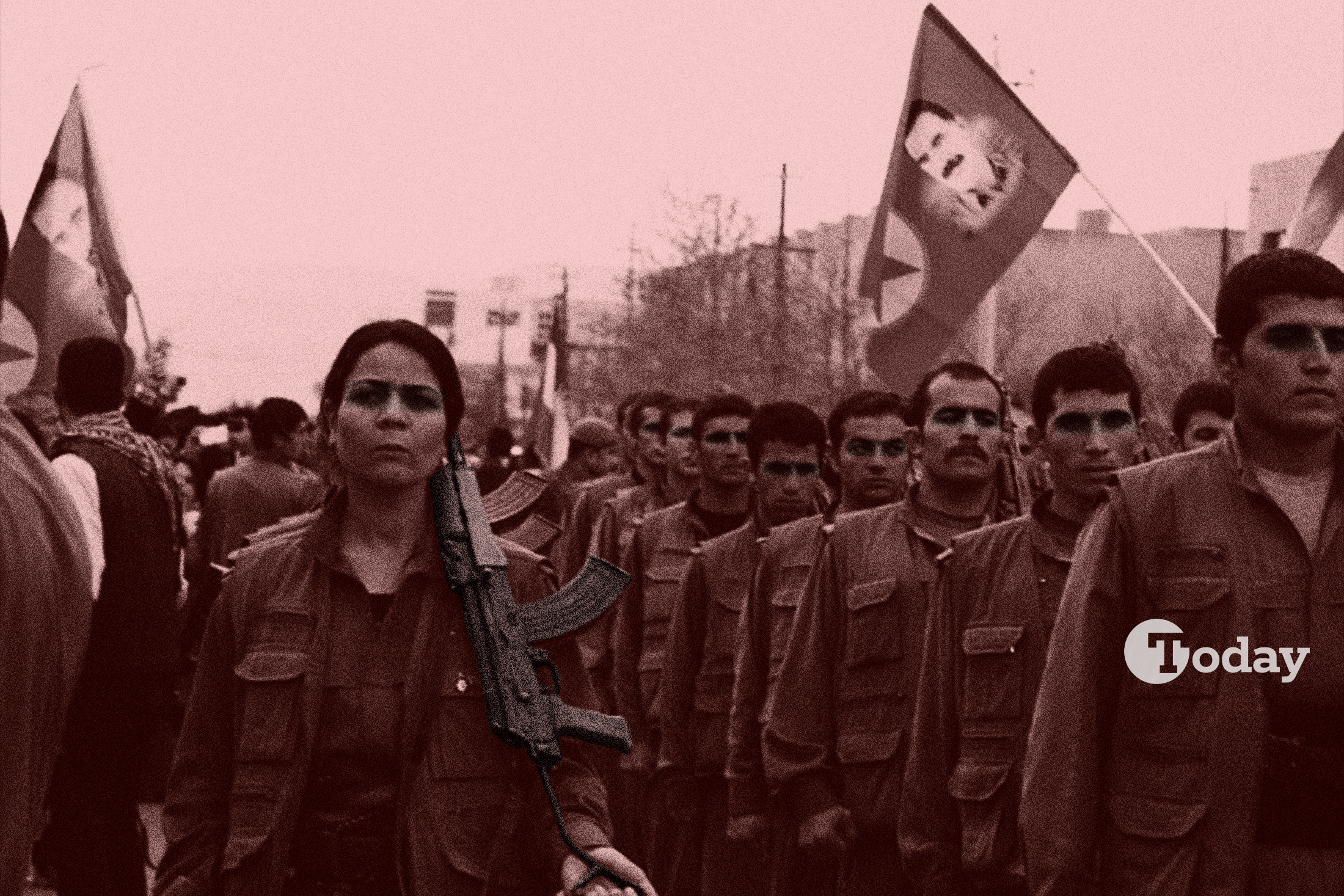
The Nationalist Movement Party’s (MHP) leader Devlet Bahceli’s call on Oct. 22 for the terrorist group PKK and its imprisoned founder Abdullah Ocalan to lay down arms and speak at Parliament created shockwaves across the Turkish political landscape.
Nationalist MHP's deputy chairman Feti Yıldız called Oct. 22 a milestone in Turkish politics.
It is hard to imagine that Bahceli made such a call on Ocalan without knowing terror chief Ocalan was already on board.
On the morning of Oct. 23, it was revealed that the nephew of PKK leader and Kurdish-oriented DEM Party MP, Omer Ocalan, visited his uncle in prison as a part of the rapprochement. The visit took place just hours before the terrorist attack in Türkiye's capital Ankara.
Since 1984, the PKK has claimed more than 40,000 lives in Türkiye. The group is regarded as the largest obstacle to economic development in eastern Türkiye and is responsible for Türkiye’s high defense spending over the past four decades.
The terrorist attack on Oct. 23 targeting Turkish Aerospace Industries (TAI) facilities in Ankara further complicates a possible peace process in Türkiye. The initial footage released after the attack showed striking similarities to past attacks carried out by the PKK terror group.
Türkiye's Interior Minister Ali Yerlikaya stated that the PKK is the main suspect in the attack. He announced that one of the attackers was a PKK member Ali Orek, code-named "Rojger."
The terrorist attack in Ankara is likely to turn the tide. However, it is observed that no major politician across the political spectrum made a fiery speech against the process ignited by the MHP leader.
The PKK/YPG terrorist group has become more complex since Ocalan's times, now featuring multiple poles of power.
Although organically and ideologically connected, a splintering of the chain of command is now apparent between PKK in Iraq and its offshoot YPG in Syria.
In the 1990s, Ocalan commanded the PKK from exile in Damascus. He is imprisoned since 1999. His isolated prison term made him practically unable to have any communication channel with the group.
YPG enjoys American protection, completely disregarding Ankara's disapproval, as Washington entered a proxy war in Syria that has of late been under the Russian sphere of influence.
The attack, despite Bahceli's call and rapprochement with terrorist leader Ocalan, shows that the terrorist leader, imprisoned since 1999, carries little to no weight over the terrorist groups in both Syria and Iraq.
Speaking to Türkiye Today, analyst Faik Bulut noted that Ocalan's influence may have diminished due to his isolated prison conditions over the last 44 months.
Despite this, Bulut opines that Ocalan still holds an advantage over the PKK's leading cadre, as he continues to exert significant influence over the Kurdish minority in Türkiye.
According to him, this may create mid-term pressure on the organization.
Kurdish-oriented lawmakers speaking to BBC Turkce noted that Bahceli's call on Ocalan is not intended to test "his control over PKK." However, some lawmakers from the AK Party and the DEVA Party argue otherwise, suggesting that this could be a test for Ocalan set by Bahceli.
After his visit to terrorist chief Ocalan, his nephew Omer Ocalan delivered a message. According to him, Abdullah Ocalan stated, ''If conditions are ready, I have theoretical and practical power to move this issue to a legal and political base instead of conflict and violence.''
In his statement, Abdullah Ocalan openly asserts that he still wields significant power to influence and manage the actions and decisions of the armed group.
According to the AA report, the organization controls 80% of the illegal drug trade in Europe and generates $1.5 billion.